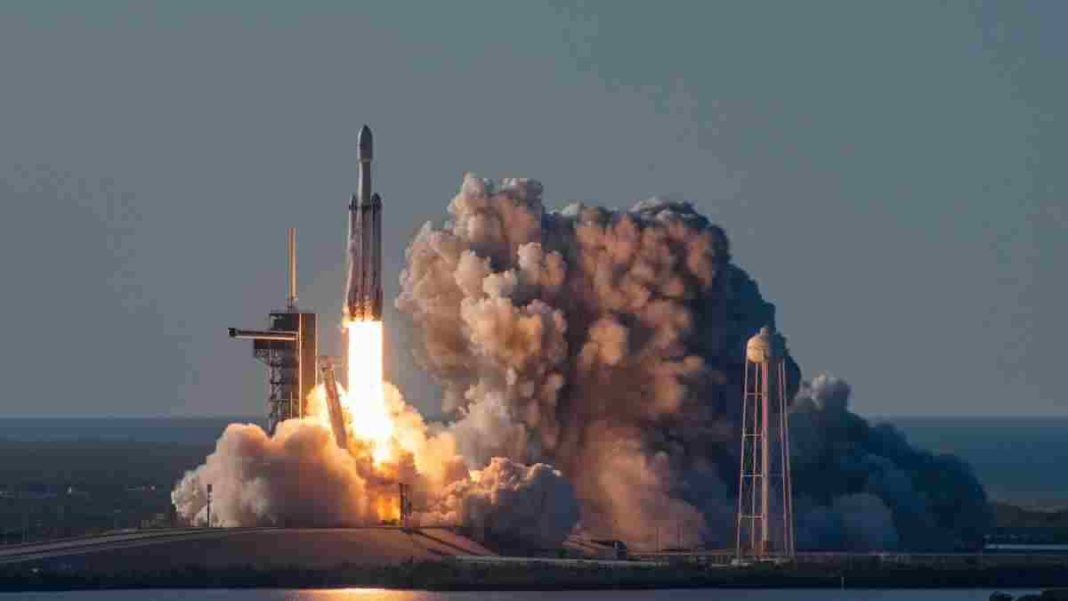UNITED STATES: In a recent launch, SpaceX’s Falcon 9 rocket, renowned for its reusable design, inadvertently created a temporary hole in Earth’s ionosphere, sparking concerns among scientists and space agencies. The event occurred on July 19 from Vandenberg Space Force Base in California, leaving researchers pondering the implications for global positioning systems (GPS) and communication technologies.
The Falcon 9 rocket, a two-stage spacecraft with 240 successful launches and 198 landings, aims to revolutionize space transport for both humans and payloads. However, the latest launch’s unexpected consequence has underscored the need for careful monitoring and evaluation of the impact of rocket launches on the ionosphere.
Upon reviewing footage from the July 19 launch, space physicist Jeff Baumgardner from Boston University identified a faint red glow indicating the formation of an ionospheric “hole” at an altitude of approximately 286 km, near the F-region peak for that time of day. The ionosphere, which lies on the edge of space and contains charged particles known as ions, plays a vital role in reflecting and modifying radio waves essential for communication and navigation systems.
Thankfully, the immediate effect on GPS accuracy was not pronounced during this specific event. However, experts warn that future launches, featuring increasingly powerful rockets driven by advances in technology and cost-effective reusable systems, may lead to more significant impacts on Earth’s ionosphere.
Charles CH Lin from the National Cheng Kung University in Taiwan emphasized the growing importance of understanding and mitigating these impacts. Due to the lower cost that reusable rockets offer, Lin claimed that humanity is entering an era where rocket launches are becoming commonplace. “As we develop more powerful rockets to explore other planets, we must pay close attention to their effects on the middle and upper atmosphere.”
This is not the first occurrence of such an event involving Falcon 9. Earlier launches on August 24, 2017, and June 19, 2022, also resulted in the creation of ionospheric holes, suggesting a recurring pattern that merits in-depth investigation.
The ionosphere’s crucial role in reflecting and modifying radio waves has far-reaching implications for modern communication and navigation systems. Ionospheric disturbances, in particular, could disrupt GPS, resulting in minimal location positioning errors during the recent event.
Scientists and space agencies must prioritise research and monitoring efforts to evaluate the cumulative impact of rocket launches on Earth’s ionosphere as the space industry continues to grow as a result of ambitious missions and the quest for interplanetary exploration.
Experts agree that understanding these phenomena will be crucial in developing strategies to mitigate any adverse effects on global communication and navigation systems. Only through responsible exploration and advancements in technology can we ensure a sustainable future for both space travel and Earth’s atmospheric balance.
Also Read: Scientists Witness Self-healing Metal: A Discovery Set to Revolutionize Engineering



